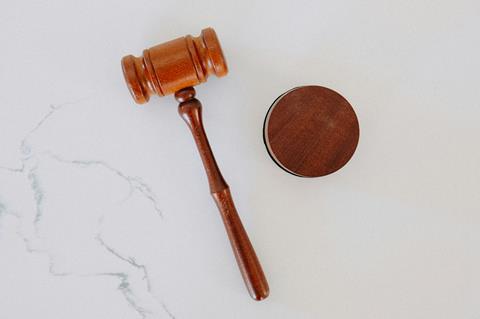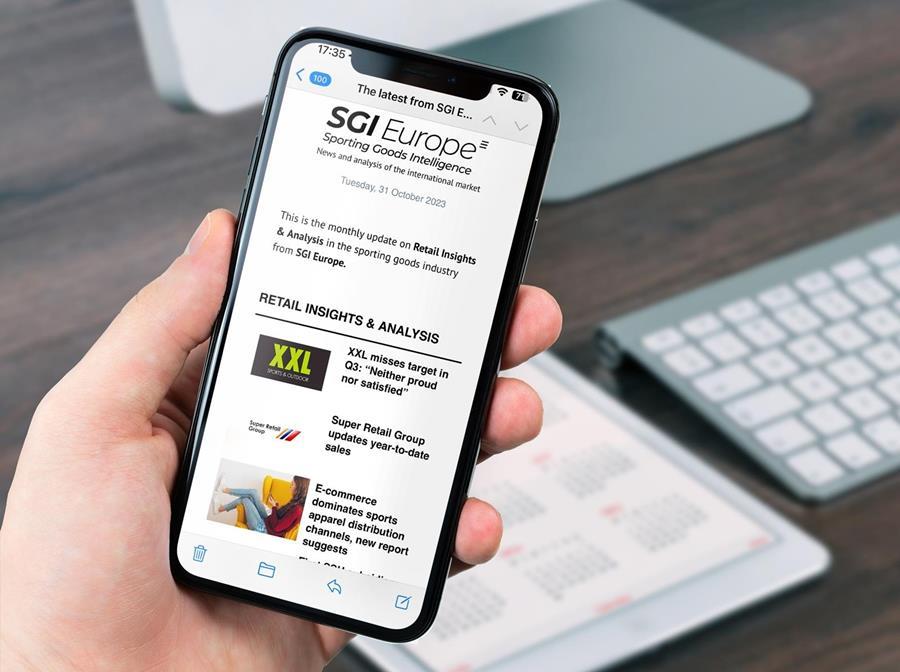Explore the complex landscape of combatting counterfeits with our legal expert Jochen Schäfer. Delve into the evolving strategies, collaborative initiatives, and advanced technologies shaping brand protection in the sporting goods industry.
Numerous well-known sporting goods brands are victimized by suffering from a flood of counterfeit products, and this plague has not decreased during Covid-19; on the contrary, numbers are steeply rising. Faked products are shipped in small parcels directly to consumers; international organized crime and even terrorist organizations maximize their illegal profits by producing and distributing counterfeits around the globe.
To efficiently fight such illicit trade, the following is, in my view, required:
• (1) New creative strategies and approaches;
• (2) Joint online and on-the-ground actions of several brand owners;
• (3) The use of sophisticated technologies, including AI-supported tools.
1. New creative strategies and approaches:
On Jan. 26, 2024, the Spanish Commercial Court of Alicante, which acted as the EU Trademark Court, issued a judgment that four Spanish individuals had violated several registered EU Trademarks of the BMW Group by selling counterfeit products such as valve caps, badges and key rings in sizable numbers. The EU TM Court ordered them to cease such activities by finding them also liable to damage compensation.
What is the new element of this court verdict? For the very first time, BMW, as a brand owner, and Amazon (led by Amazon’s Commercial Crime Unit/CCU), as a major online platform provider, had joined forces and started legal action to proceed in a united fashion against these Spanish criminals. This scenario could serve as a role model not only for similar Amazon-related scenarios but also for closer cooperation between IP rights owners and other online platforms (and here, at least with those Internet service providers who are, to a similar extent, cooperative as Amazon proved to be).
Kebharu Smith, Director of Amazon’s CCU, has commented on this favorable court judgment by saying, “Amazon has zero tolerance for counterfeit products and will take the fight to bad actors wherever they operate […] By partnering with brand owners like BMW Group, we can successfully shut down counterfeiters and stop fake items from ever reaching our customers or being sold elsewhere in the supply chain”*.
So let us take him at his word to elaborate on how the sporting goods sector and its leading brands can equally benefit from such a new innovative approach collaboratively. In this context, I may also quote Dr. Jochen Volkmer, head of IP at BMW, who emphasized in this context: “When platforms and brand owners both contribute their investigative capabilities and technological resources to jointly identify and target counterfeiters, the fight against bad actors can be very effective and successful.” *)
Such legal actions are not confined to Spain if based on valid registered EU trademarks. On the grounds of the EU Trademark Regulation, which established its own jurisdictional regime, certain specified national courts within the EU member states, such as the one in Alicante, have been empowered to handle cases dealing with the infringement of unitary EU trademark rights. Lawsuits of this type can be brought forward in all 26 EU member states.
2. Joint online and on-the-ground actions of several brand owners:
2.1 There is no hindrance to brand owners, who are otherwise fiercely competing against each other, coming together to take joint action to combat counterfeits at national and international levels. In this environment, all legitimate commercial operators exposed to such illegal activities are sitting in the same boat and are rowing it in the very same direction. And here, the World Federation of the Sporting Goods Industry (read more here) comes into play.
The WFSGI offers its members a broad array of services in the field of IP protection and enforcement, where they can benefit not only from discounted rates but also from cooperation with other brands and from the Federation’s established knowledge database.
While it would be desirable in an ideal world that those involved in the illicit manufacturing and distribution of fake products would not even have the possibility to offer such products for sale on the Internet, the reality is, of course, quite different. This is why, with my active involvement following a thorough due diligence process, the WFSGI entered into a cooperation with the globally reputable service provider Corsearch in 2022. This decision was made after obtaining valuable feedback from WFSGI members who had already used various service providers offering these types of services. The WFSGI’s November 18, 2022, press release stresses:
“The recently announced partnership between the WFSGI and Corsearch sets out to strategically strengthen the Sporting Goods Industry’s global efforts to fight e-commerce counterfeiting and online brand abuses. The rapid growth of e-commerce and digital media consumption has undoubtedly offered new global market opportunities for businesses but has also led to the increasingly common threats of counterfeiting, grey trade, brand abuses, and online piracy. According to Corsearch, more than 12.5 billion online references to brands and content are captured annually. The solutions to monitor the intellectual property of brands include trademark screening, trademark searching, trademark watching, domain services, and brand and content protection. All-encompassing strategies ensure that brands can act against the broadest range of pirate networks, search engines and social media. They are even more efficient if leveraged industry-wide. Any interested sports brand can contact the WFSGI for more information.”
Corsearch’s services are provided on a subscription basis at preferential rates for WFSGI members, but they are also open to non-members. More detailed information can be obtained from Charlotte Giudicelli, Head Legal at the WFSGI’s secretariat.

2.2 Yet the fight against counterfeits cannot be limited to online interventions only. They must be complemented by on-the-ground raids and other IP enforcement activities, and here I may again quote the WFSGI’s website:
“Multiple benefits are created when brands, who are highly exposed to on-the-ground counterfeit activities, get together:
1. A collective effort of several well-known, if most famous, brands in this area is taken much more seriously by local enforcement authorities than individual actions.
2. Counterfeiters are more massively hit when a group of IP rights holders attacks them. The idea is to put the suspects entirely out of business.
3. Last but not least, such collective efforts have substantial scaling cost-saving effects.
To guarantee the success of these operations, the specific targeted locations cannot be divulged publicly, but more information can be obtained by WFSGI members if they express interest in participating in these joint raids.”
A couple of brands, both members and non-members of the WFSGI, including fashion brands, got together and conducted several on-the-ground raids in Southeast Asia, which a trusted investigator coordinated. The Covid-19 pandemic has temporarily hampered such activities, but they will continue.
2.3 In addition, the WFSGI has also established a database of proven and reputed IP experts and investigators on the ground with the collaboration and active input of some of its members. Access to this database is restricted to those in-house IP and brand protection experts, who are at the operational level in charge of these activities and is furthermore subject to reciprocal treatment in terms that only those brands who are willing to disclose their own sources in this area for registration in the database can benefit from such service.
3. The use of sophisticated technologies, including AI-supported tools:
Given the fact that counterfeiters are equipped with the latest communication technology, it is essential that also the sporting goods sector and its brands develop and implement sophisticated anti-counterfeit tools to allow an ultra-swift identification of their genuine products and an efficient tracing and tracking to enable not only enforcement authorities all over the world to detect fakes easily, but to make it possible also for consumers in an uncomplicated way to find out whether a particular product they intend to buy is authentic or not.
The WFSGI, with its digital labeling task force composed of the Who’s Who of the industry, is actively lobbying to permit digital labeling and the provision of detailed product information for purchasers and users of sporting goods products, and this is not limited to apparel and footwear only, but also including hardware and the bicycle sector. If linked to a particular product, such digital labels could also contain elements to certify that such product is original.
In the world of sports, positive team spirit is one of the top criteria on the road to success. In my opinion, a similar team spirit is needed to substantially increase the chances of success to at least significantly reduce the number of counterfeits offered and sold in Europe and other parts of the world. Let me finish this article with the famous and, in this context, very fitting quote of Albert Einstein: “We cannot solve our problems with the same thinking we used when we created them.”
*) Source: World Trademark Review Article Feb. 27, 2024 “BMW reflects on first-of-its-kind Amazon win against Counterfeiters in Spain.”
Dr. Jochen M. Schaefer is a German practicing attorney based in the Munich area. For several years, he has been representing the World Federation of the Sporting Goods Industry (WFSGI) and the European Federation of the Sporting Goods Industry (FESI) as their legal counsel. He also chairs the WFSGI’s legal committee and is co-chair of the FESI’s digital working group. At the individual client level, he represents a significant number of well-known brands within and beyond the bicycle/sporting goods sector. He is a specialist in national and international distribution topics, intellectual property (IP) and risk management issues, and the drafting and negotiation of comprehensive contracts at the operational level; in particular in the area of European selective distribution schemes. In case of any questions about this article (or in general), he can be reached at sj@sjlegal.de and at +49 151 1640 7932.

























